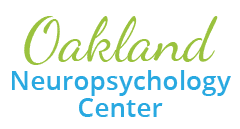Autism Spectrum Disorder Testing for Children and Teens
There’s a lot of talk about autistic spectrum disorders (ASD) these days – it’s in the news, in magazines, and seems to be on the rise with children. If parents are concerned about differences in their child’s speech, behavior, and social skills when compared to other children, ASD should be considered.
Autism is a spectrum disorder, which means that it affects individuals in different ways, with varying degrees of severity, and at different times in their development. It can include delays in several areas of functioning including social functioning, communication skills, motor skills, and overall intellectual potential.
ASD can be identified between 18 months and 3 years of age, but in many cases, it is identified at a later age. Parents of younger children may notice that their child “doesn’t hear them” or that a child who once had a vocabulary now speaks little to no words at all. Parents of older children or teens report that their child has many sensory sensitivities, areas of unusual ability or ‘obsessions,’ and challenges making and keeping friends despite being caring and loving. This can be a perplexing situation for parents who want their children to fit in socially and grow intellectually.
Children with ASD frequently experience academic interference and executive function issues, including problems with:
- Initiating and planning
- Perspective taking
- Reasoning and problem solving
- Getting along with peers and forming friendships
- Emotional challenges due to anxiety, depression, and low self-esteem
- Academic underachievement
Autism impacts the entire family, so understanding the disorder through a neuropsychological assessment and appropriate intervention planning is a great first step.
Autism Testing for Adults
ASD is not exclusive to children and teens—many adults may go undiagnosed for years, attributing lifelong social, emotional, or sensory challenges to other causes. Adults who suspect they may be on the autism spectrum often describe feeling “different,” struggling with social interactions, communication, or routines, or experiencing intense interests and sensory sensitivities. A formal evaluation can provide clarity, self-understanding, and access to supportive services and accommodations.
Our neuropsychologists are experienced in assessing autism in adults using evidence-based tools tailored to adult functioning and life experiences. Whether you’re seeking an explanation for longstanding challenges, or looking to better understand yourself or a loved one, an autism assessment can be a valuable step forward.
If you have questions about our services or like to schedule a consultation with one of our neuropsychologists, please call (248) 644-9466 or email us through the form on our contact page.l us through the form on our contact page.


